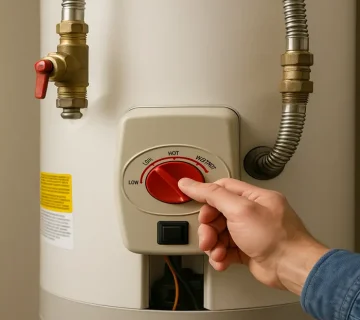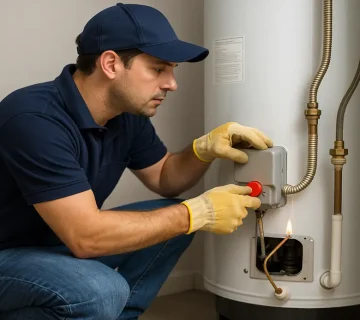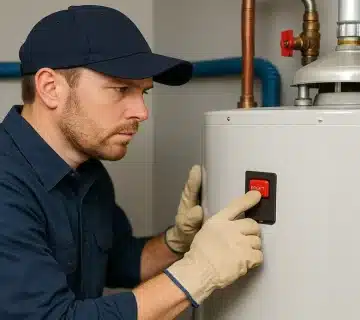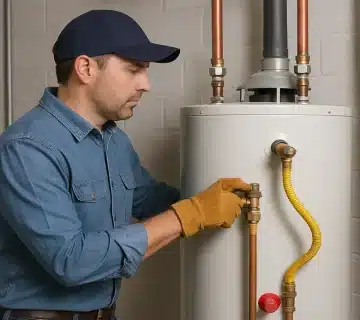Gas vs Electric Water Heaters: Top 5 Tips for Choosing the Right One
Choosing the right water heater for your home is a crucial decision that impacts energy efficiency, costs, and overall comfort. Gas vs electric water heaters each have their benefits, but the best option depends on your specific needs and preferences. This guide will share the top 5 tips to help you decide between a gas or electric water heater.
1. Understand the Costs
When comparing gas vs electric water heaters, upfront and ongoing costs are key considerations. Here’s a breakdown:
- Gas Water Heaters:
- Upfront Cost: Higher initial cost due to installation requirements like venting systems.
- Operating Cost: Typically lower than electric water heaters because natural gas is usually less expensive than electricity.
- Electric Water Heaters:
- Upfront Cost: More affordable and easier to install.
- Operating Cost: Higher long-term costs due to electricity rates.
Consider your budget and energy prices in your area to evaluate which option suits your financial goals.
2. Assess Energy Efficiency
Efficiency can significantly affect your utility bills and carbon footprint:
- Gas Water Heaters:
- Generally less energy-efficient as they lose heat through venting.
- High-efficiency models with sealed combustion or condensing technology can improve performance.
- Electric Water Heaters:
- More energy-efficient because they don’t lose heat through flue gases.
- Heat pump water heaters (a type of electric heater) are highly efficient and eco-friendly.
If reducing your environmental impact is a priority, electric models, particularly heat pumps, may be the better choice.
3. Evaluate Performance and Recovery Rate
Performance refers to how quickly a water heater can supply hot water:
- Gas Water Heaters:
- Faster recovery rate, making them ideal for larger households with high hot water demand.
- Electric Water Heaters:
- Slower recovery rate, better suited for smaller households with lower water usage.
When deciding between gas vs electric water heaters, consider the size of your household and your daily water usage patterns.
4. Consider Installation Requirements
The installation process for gas vs electric water heaters varies:
- Gas Water Heaters:
- Require a gas line and a venting system for exhaust gases.
- Installation can be more complex and costly.
- Electric Water Heaters:
- Easier and more flexible to install as they don’t require venting.
- Ideal for homes without access to natural gas.
If your home doesn’t already have a gas connection, installing a gas water heater may involve additional costs.
5. Think About Maintenance and Lifespan
Proper maintenance ensures the longevity and efficiency of your water heater:
- Gas Water Heaters:
- Require regular maintenance to clean burners and inspect venting systems.
- Average lifespan is about 8-12 years.
- Electric Water Heaters:
- Require less maintenance overall.
- Tend to last longer, with an average lifespan of 10-15 years.
Additionally, keep in mind that water quality in your area can impact the lifespan of your water heater. Hard water, for instance, may lead to sediment buildup, reducing efficiency and requiring more frequent maintenance for both gas and electric models. Installing a water softener can help mitigate this issue.
Final Thoughts
Choosing between gas vs electric water heaters depends on your budget, household needs, and long-term goals. Gas water heaters are ideal for larger households with high hot water demands, while electric models are more energy-efficient and cost-effective for smaller homes. By considering costs, efficiency, performance, installation, and maintenance, you can make an informed decision that ensures your home’s comfort and energy savings.
If you’re still unsure, consult a professional to assess your specific situation. For more expert advice, visit Value Water Heaters to explore the best water heater options for your home.
Need assistance? Find us on Google Maps or watch helpful videos on our YouTube Channel.





